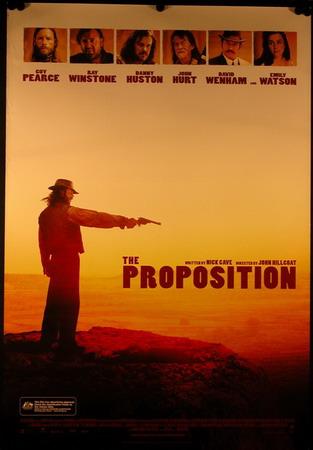Proposition, The

dir: John Hillcoat
I still have the soundtrack by Warren Ellis and Nick Cave ringing in my ears. For in truth that is probably the most successful part of the film.
This so-called Australian “Western” has little going for it except lovely postcard visuals, a melancholy tension, people with bad teeth giving good performances and a hell of a lot of brutality.
Let’s face it, the starting point of British colonialism in this country was anything but auspicious or pleasant for any of the people involved. The town of Banyon serves as the “hell” in the line uttered by one of the film’s many characters, “What fresh hell is this…”, though he is in fact talking about all of Australia.
Though the land has its empty natural beauty, it looks like what much of it is: hostile and inhospitable. Of course the film plays this up and makes it look like the first whities here must have been insane to stay. As well as being very dirty all of the time.
Many people star in this flick, many people were involved, and so it comes with many expectations. Maybe a stack of people are going to think it’s the bee’s knees. For me it was more like the flea’s disease.
- Read more about Proposition, The
- 3186 reads
